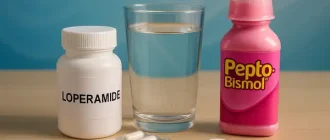When a person notices red tomato skin-like pieces in their stool, it can be a cause for concern. Here are some possible causes and what one should do in such a situation:
- Consumption of red fruits and vegetables: The most common cause of seeing red tomato skin-like pieces in stool is the consumption of foods like tomatoes, red bell peppers, beets, or watermelon. These foods contain pigments called anthocyanins, which can pass through the digestive system mostly intact, resulting in the appearance of red fragments in stools.
- Bleeding in the gastrointestinal tract: If the red tomato skin-like pieces in the stool are not due to dietary choices, it could be a sign of bleeding somewhere in the gastrointestinal tract. This bleeding can be caused by various conditions such as hemorrhoids, anal fissures, diverticulosis, inflammatory bowel disease, or even cancer. If there is persistent or unexplained bleeding, it is important to seek medical attention.
- Medications or supplements: Certain medications or supplements with red coloring agents can also cause the appearance of red fragments in stools. Examples include iron supplements, Pepto-Bismol, or medications containing bismuth. It is advisable to check labels and consult a healthcare professional if any concerns arise.
What to do:
- Monitor the occurrence: If the presence of red fragments in the stool is attributed to dietary choices, there is generally no cause for alarm. However, if the frequency or quantity of these fragments increases, it is advisable to consult a healthcare professional.
- Observe other symptoms: It is essential to pay attention to additional symptoms that may accompany the presence of red fragments. These may include abdominal pain, blood in the toilet bowl or on toilet paper, changes in bowel habits, or unexplained weight loss. Reporting these symptoms to a healthcare professional is crucial for diagnosis and appropriate treatment.
- Seek medical advice: If there are concerns about bleeding or if the cause is unknown, it is recommended to consult a healthcare professional. They will be able to assess the situation, order any necessary tests, and provide appropriate guidance and treatment options.
- Stay hydrated and maintain a balanced diet: To ensure overall gastrointestinal health, it is important to stay hydrated and consume a balanced diet rich in fiber, fruits, and vegetables.
In any case, it is best to consult a healthcare professional for a proper evaluation and to rule out any serious underlying conditions. They will be able to provide personalized advice and treatment based on individual circumstances.
About the Author
Reyus Mammadli is the author of this health blog since 2008. With a background in medical and biotechnical devices, he has over 15 years of experience working with medical literature and expert guidelines from WHO, CDC, Mayo Clinic, and others. His goal is to present clear, accurate health information for everyday readers — not as a substitute for medical advice.







